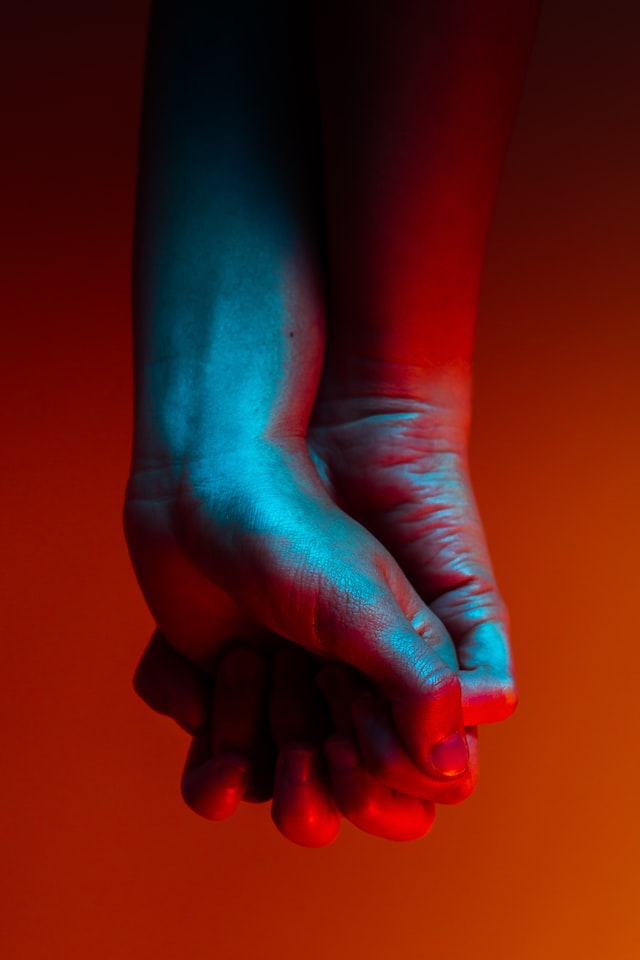Everyone’s starting to feel the pinch, but for people living with sickle cell disease, the toss up between heat-or-eat is a matter of life or death.
BY NATALIE MORRISFOR WELLBEING
“If I get too cold this winter, I’ll end up back in hospital,” says Laurel Brumant-Palmer, a 58-year-old Black woman living with sickle cell disease. “It’s just not an option. I won’t put myself through it.”
Turning 60 next year, Brumant-Palmer never expected to reach this milestone. After being diagnosed with the chronic blood condition when she was just three years old, she spent months in hospital beds, repeatedly experiencing the extreme pain caused by a sickle cell crisis. Doctors gave her a 50% chance of survival, and she never really expected to make it to adulthood.
“My childhood consisted of being in chronic pain, constantly,” she explains. “It was incredibly traumatic. I was barely living, I gave up on having a future. I felt like I was just waiting for death.”
As the decades passed and treatment improved somewhat, Brumant-Palmer turned a corner; she finally felt she could live a more fulfilling life with sickle cell.
She got married, had a family, found a part-time job working in a school, and even studied for a graphic design degree in her 50s. But now, her hard-fought security is under threat as the cost of living crisis squeezes her resources from every angle.
WHY IS THE COST OF LIVING CRISIS SO DANGEROUS FOR PEOPLE WITH SICKLE CELL?
“For people with sickle cell disease, winter is the enemy,” she tells Stylist. “This disease does not like the winter, it does not like the cold. We have to have warmth. So the gas and electric bills are a huge concern for me right now.
“At work, I hear people talking about not putting their heating on until December, putting more jumpers on, or just bearing the cold. I am not prepared to do that. I am not prepared to have a [sickle cell] crisis because I can’t afford to stay warm. It causes a massive amount of anxiety for me.”
A sickle cell crisis is severe and can be incredibly distressing. During a crisis, blood vessels to part of the body become blocked. The pain is intense, and it can last from a few days to weeks at a time.
The lack of oxygen experienced during a crisis can cause damage to your organs and your bones, leaving patients with an array of complex health complications to navigate.
The frequency of these bouts of pain varies for each person, some may have them every few weeks, while others may only have one bad episode per year. \
There are a number of things that can trigger a pain crisis – including dehydration and strenuous exercise – but cold weather is another known trigger.
“It’s to do with blood viscosity,” Nigel Nicholls, UK general manager at Global Blood Therapeutics tells Stylist. “Sickle cell patients are urged to stay warm because that keeps your blood less viscous, less ‘sticky’. The stickier your blood, the more acute the pain crisis will be.”
While many people will be facing the horrible dilemma of heat-or-eat this winter, this bleak situation takes on a whole new dynamic for people like Brumant-Palmer who also have to factor in the need to stave off extreme pain.
“When you experience the pain, it’s like all consciousness leaves your body,” she explains. “I have had two children and I would rather give birth to 25 more children than have a crisis, because I know that after giving birth, the pain is over. With sickle cell, you can always have another crisis, and you might be left with kidney damage or heart damage. It never leaves you. It’s always there.”
WHY THE COST OF LIVING CRISIS DISPROPORTIONATELY AFFECTS PEOPLE WITH SICKLE CELL
Fears over sky-high heating bills aren’t the only way the cost of living crisis will disproportionately damage the sickle cell community. Many people living with this illness are already on the back foot financially because the condition limits how much you can work and, subsequently, how much you can earn. Sickle cell disease can incapacitate you for weeks at a time, forcing people to take extended sickness breaks or even lose their jobs.

Read more









